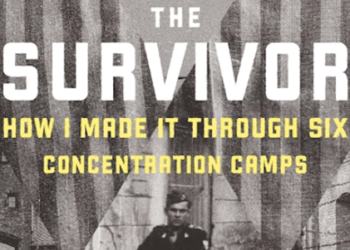Sixty-Six is a funny and touching story of a Jewish boy’s star-crossed Bar Mitzva in LondonÂ
By CURT SCHLEIER
When Paul Weiland was growing up in London and his schoolmates chose sides to play soccer, he was always picked last — after the boy with polio.
“I was pretty weedy,” he says, on the phone from his London office. “The school was pretty tough, and my skills on the football pitch weren’t good. And it didn’t help that I was Jewish.” There were only two other Jewish children in his year.
Weiland, 55, has done pretty well for himself in the years since then. He’s become an important film and television director in the United Kingdom, and has crossed the pond successfully with films like City Slickers II: The Legend of Curly’s Gold and, more recently, Made of Honor.
But despite the success and its accoutrements — fame and money — he has never forgotten the humiliation of waiting for his name to be called. It is at the heart of his newest American release, Sixty-Six, which will be shown March 5 at the kickoff event of the Sabes Foundation Minneapolis Jewish Film Festival.
The movie is about growing up overlooked — by schoolmates and even by his parents. “My mother couldn’t see me,” he says. His father had OCD (obsessive compulsive disorder), which occupied her almost full time. “My father was the child in the family and we [Paul and his brother] didn’t get as much attention as we would have liked.”
Paul’s doppelganger is Bernie Reuben, whose life finally takes on a purpose as his Bar Mitzva approaches. “It wasn’t that I was that religious,” Weiland says. “The fact of the matter was that I might get some attention. I would perform and get my mom to see me and in that way she would recognize me.”
Of course, it wasn’t to be. The father has serious financial reverses. The family home catches fire. And the lavish affair young Bernie planned in his head becomes a house party with music by an Irish band. Worse still, despite the predictions of every knowledgeable sports fan, the British team makes it all the way to the World Cup finals — held the day of the Bar Mitzva. Even family members develop sudden illnesses and send their regrets.
The film is at once sad, funny and moving. Making it “was a lot harder” than Weiland anticipated. But “at the same time, it was a cathartic experience. It was like being in analysis, really. In a way, you’re basically dealing with your demons.”
The idea for the film grew out of Weiland’s 50th birthday party, attended by 150 of his closest friends. “I’d been to quite a few of those kinds of parties where the guest of honor made amazing speeches. I thought to myself, ‘My God, what am I going to talk about?’ I started out by saying at the last important party in my honor no one showed up. Afterwards a few producers came up to me and said that my speech was almost like a [movie] pitch. They wanted to see a full treatment.”
The film was released in the U.K. in 2006, and one indication that Weiland’s poor timing for special events is no one-time fluke is that Sixty-Six came out the same weekend as Borat. The next week, the new Bond film was released. “Slightly bigger events for people to go to,” says Weiland.
The streak continues. His Made of Honor opened the same weekend as Iron Man, which broke opening-weekend records. Sixty-Six (the year the Bar Mitzvah takes place) originally premiered in the U.S. last Aug. 8 — the day of the opening ceremonies of the Beijing Olympics.
Bad opening day aside, Sixty-Six did well in England, particularly in the Jewish sections of London. “They were queuing around the block, and even in the fifth week it was still filling the theater,” Weiland says.
“It was a labor of love. I did it in the kid’s voice — a kid who really wants his dad.”
At film’s end, there is a rapprochement between father and son. Sadly, that’s not what happened in real life. “This is how I would have liked it to end, but it really didn’t. God gives this gift to a film director; you can rewrite your life and make it turn out the way you want it to.”Â




















